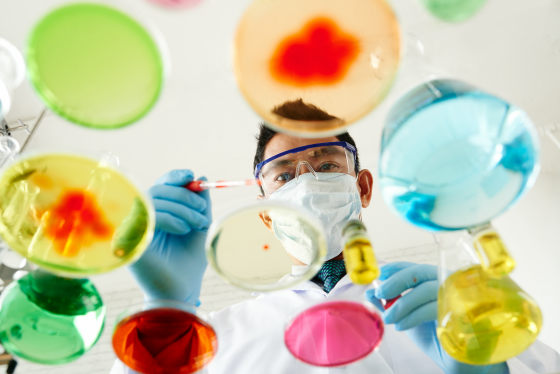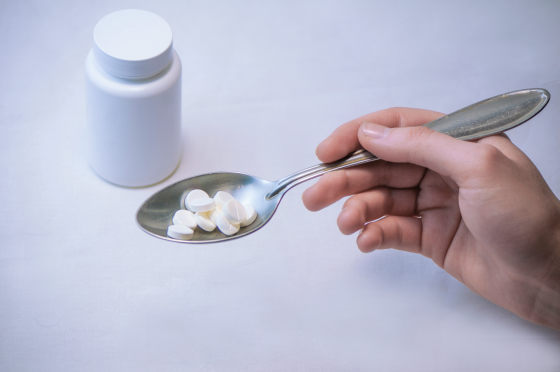Gut bacteria are newly found to 'accumulate' the drug, which may reduce the effectiveness of the drug

The human gut is home to a community of hundreds of bacteria that affect health and illness, called the
Bioaccumulation of therapeutic drugs by human gut bacteria | Nature
https://www.nature.com/articles/s41586-021-03891-8
Gut bacteria accumulate many common medications and may reduce their effectiveness | University of Cambridge
https://www.cam.ac.uk/research/news/gut-bacteria-accumulate-many-common-medications-and-may-reduce-their-effectiveness
Human Gut Bacteria Could Be Accumulating Our Medications Without Us Realizing
https://www.sciencealert.com/the-drugs-you-swallow-are-probably-hijacked-by-microorganisms-living-inside-you
It has been known that the intestinal flora that exists in the intestine interacts with drugs and compounds taken by humans, and past studies have also reported the occurrence of biotransformation. .. Biotransformation is a term that explains, for example, 'chemical changes that occur when yeast reacts with hop components in beer brewing,' and refers to the chemical changes that a compound undergoes due to a biocatalyst.
However, a new study published by the University of Cambridge found that gut bacteria not only biotransform the drug, but also 'accumulate the drug into the cell.' Accumulation was confirmed in the antidepressant drug duloxetine and the antidiabetes drug rosiglitazone , and both 'accumulating bacteria' and 'biotransforming bacteria' such as the asthma drug montelukast are confirmed. There was also a case.

According to Kiran Patil of the MRC Toxicology Unit at the University of Cambridge, the experiment exposed 25 types of bacteria present in the human intestine to 15 types of human medicine. 'It's surprising that the main interaction we've observed between drugs and bacteria is'accumulation'. So far, biotransformation has been the main impact on drug availability to the body. I was thinking, 'said Patil. Duroxetin accumulated in the bacterium binds to several metabolic enzymes and changes secretory metabolites, so drug accumulation may change the subsequent behavior and metabolic process of the bacterium, and in the intestine. It seems that it may affect the balance and proportion of bacteria.
This study is a lab experiment rather than an actual human, but if the same thing happens in the human body, bacteria may accumulate the drug and reduce the effect of the drug on the body. Researchers point out that there is. In addition, it is possible that the accumulation of drugs by bacteria may affect the human body in the form of side effects. On the other hand, according to Patil, even if the bacteria are the same, there are differences in the accumulation depending on the strain, and it is thought that there are individual differences in the accumulation depending on the composition of the human intestinal flora.

'Our next step is to advance this basic molecular study and investigate how individual gut bacteria are associated with various responses to antidepressants and the like.' 'Composition of the microflora. If we can characterize how a person responds to a response, we can personalize the drug treatment, 'said Patil. Pia Bourke, who led the study, commented on the results of the study, saying, 'We can say that we are asking us to treat the microbiota as one of the organs.'
Related Posts:







